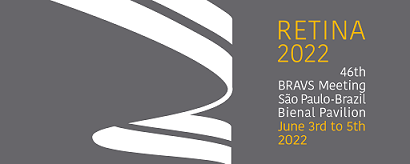Abstract General Information
Título / Title
IMPROVEMENT OF DIABETIC RETINOPATHY SCREENING USING ARTIFICIAL INTELLIGENCE IN DIABETES CAMPAIGN, AND CORRELATING WITH DIABETIC RETINOPATHY CLASSIFICATION
Introdução / Purpose
Retinal cameras using Artificial Intelligence (AI) have already shown to be an effective tool into diabetic retinopathy (DR) screening programs.Our objective is to improve our local screening program and contribute to the deep learning (DL) algorithm (PhelcomNet) by evaluating the performance of the retinal cameras from Phelcom in the detection of DR in diabetes patients of HUCAM/UFES and correlate with the DR classification assessed by specialist.
Material e Método / Methods
Diabetic patients were selected from the local service and invited to join the Diabetes Campaign in Vitória – Espírito Santo, on November 27, 2021.They underwent fundus photographs of both eyes with Eyer equipment.Patients with alteration score by DL algorithm higher than 70% or indeterminate had classification also performed by human reading and Data were collected.
Resultados / Results
A total of 97 individuals with diabetes were enrolled at this Diabetes Campaign and this amount of patients were assessed by Retinal camera screening.41 patients showed any alteration score higher than 70% or indeterminate in at least one of the eyes and proceeded to human reading.Within these patients, 14 patients (34,1%) had any stage of DR in at least one of the eyes, 7 (17,1%) had mild non-proliferative DR (NPDR), 5 (12,2%) had moderate NPDR, 1 (2,4%) had severe NPDR, 5 (12,2%) had proliferative DR, 7 (17,1%) had significant macular edema, 1 (2,4%) had retinal detachment with macula off, and 15 (36,6%) had no retinal alterations.11 (26,8%) had cataract and 13 (31,7%) had other findings.
Discussão e Conclusões / Conclusion
This study shows that besides the new DL technologies may help the screening of DR, the human evaluation is still required, since the equipment does not always distinguish DR from other ocular diseases.Devices using AI might increase coverage of DR screening programs, by selectingthe patients who need human reading, which can improve the management of Brazilian public health.However the technology must be improved to reach RD severity in the upcoming software updating.
Palavras Chave
Retina; Deep Learning; Diabetic Retinopaty;
Area
CLINICAL RETINA
Institutions
Universidade Federal do Espírito Santo - Espírito Santo - Brasil
Authors
Allan Gonçalves Henriques, Allana Mary Antonio Moulin, Maria Eduarda Morais Hibner Amaral, Leonardo Fávaro Pereria, João Victor Cornachini, Luísa Soldati Bastos Rezende, Gustavo Santos Porfiro, Thiago George Cabral Silva
